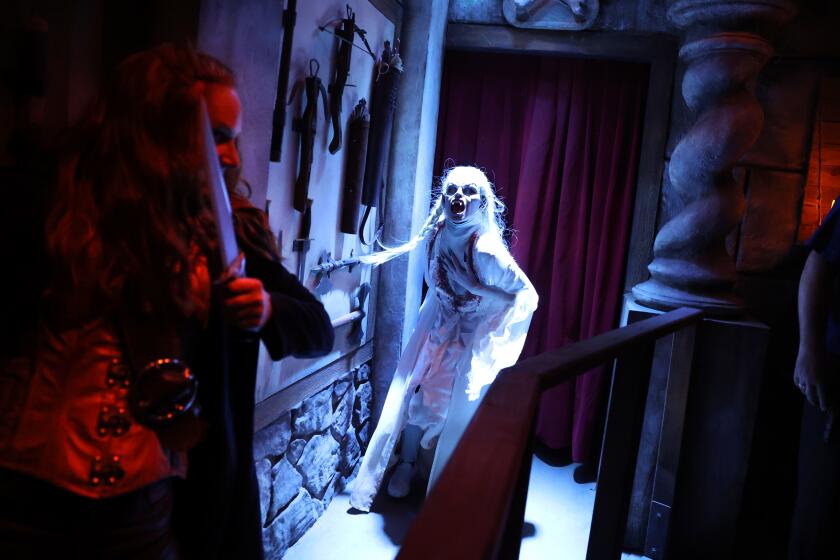College Tour Tips From a Dad Who Survived
Staying in trashy hotels and surviving on pizza and Dunkin’ Donuts, we covered seven states in as many days. Landmarks and historical sites were ignored as we pressed on, exhausted, to the next city. A desperate run from the law? A re-creation of Jack Kerouac’s “On the Road” adventures? No.
This was how I visited colleges this month with my 16-year-old son. When I applied to college in 1970, the only thing I knew about the school I applied to -- Arizona State University -- was what I read in the school’s catalog. Visit the campus? I had never even been to Arizona.
But for today’s high school students, the springtime or summer college tour is a virtual must. One mother told me that she and her daughter had visited 28 schools. Though we visited nine on this trip, I won’t pretend to match her record. Still, I’ve learned a few things that may be helpful to parents.
* Avoid the information session. They don’t give you any information that can’t be found in far greater detail on the Web. Of course, if you enjoy sitting in an auditorium amid a few hundred parents who all look wealthier and smarter than you, go for it.
* Read the campus newspaper. There’s no better way to get a feel for the political, social and intellectual life of a campus. If you’re looking for a battered used car, this wouldn’t be a bad place to look, either.
* Pay attention to the attitude of your tour guide. The campus tours are led by students, and the best guides were those who were most enthusiastic and informed. At Wesleyan in Connecticut, our tour guide took pains to point out which dorm was “clothing-optional,” which cafeteria offered vegan meals and where contraceptives were available around the clock. Late in the tour, she began her discussion of the academic life of the school as follows: “The rumor that the sciences here are terrible is completely untrue.” Wow! Where do I send the check?
* Don’t ask dumb questions. After one tour guide at lovely Lafayette College in Pennsylvania had recommended the “substance-free” dorms, one mother said suspiciously, “If some dorms are substance-free, what does that say about the other dorms?” I wanted to tell her this was a college, not a monastery.
* Talk to random students. One assumes that the tour guides love their schools or they would be doing something else with their afternoon, like studying. On a drizzly, gray day as we toured the beautiful Johns Hopkins campus in Baltimore, a student passed our group. “Go somewhere warm,” he said.
* Hang around for a while. Get a sandwich in the student union. It isn’t about the food, but about the atmosphere and the feeling one gets from the students.
* Have your student jot down some notes. These come in handy when he or she writes that all-important essay, explaining in passionate detail why he wants to attend XYZ university and no other. Even if it’s a lie. Mentioning an attribute that actually describes another school would be a little like yelling out the name of another woman at the wrong moment.
My son and I took several weeks planning our frantic marathon. With his high school counselor, we chose a range of institutions, from small liberal arts colleges to larger research-led universities; from those in busy urban centers to others out in the country. All of this careful strategizing was intended to demonstrate that there were a vast number of choices out there, and that he didn’t have to go for a big-name school to get a great education.
The end result, of course, is that he has fallen in love with Yale, which rejects more than 90% of its applicants.
So, in the final analysis, pinching pennies on the college tour was pretty pointless when one considers that the bill at Yale -- toting up tuition, room, board and fees -- is a staggering $160,000. In truth, though, the price was about the same at most of the schools we visited, large or small.
“Don’t even think about the money,” I told my son as I thought about the money. “If you get in, we’ll find a way to make it happen.” After all, I have two kidneys, don’t I?
*
Chris Westphal, a novelist, teaches high school journalism in Ojai.
Sign up for The Wild
We’ll help you find the best places to hike, bike and run, as well as the perfect silent spots for meditation and yoga.
You may occasionally receive promotional content from the Los Angeles Times.



